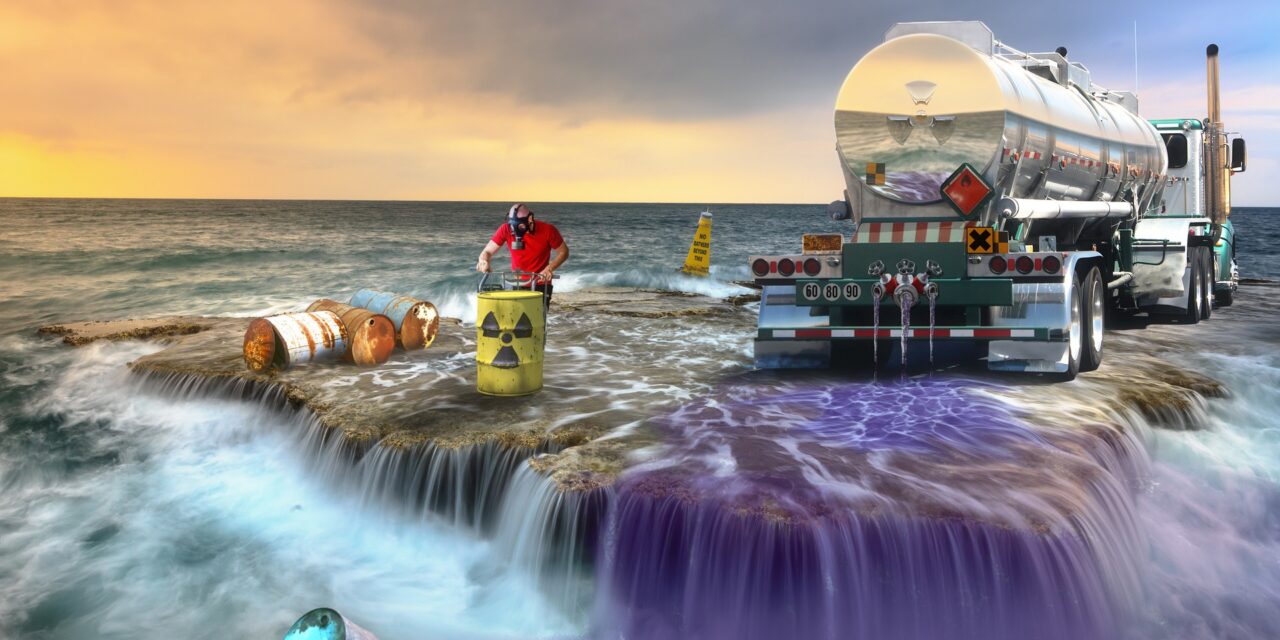The names of the Gulf of Mexico, Niger Delta, Deepwater Horizon, and Probo Koala are connected with some of the worst environmental disasters caused by companies. Though some cases have led to settlements being paid to the victims, the lives lost and the damage caused to the environment are irreversible. Currently, the profits from dangerous human activities, such as drilling for oil, mining, and using nuclear power continue to act as incentives for businesses to endanger human lives and the environment with little to no protection offered by states. This has led many advocates and scholars to believe that prosecuting ecocide in the International Criminal Court (ICC) in the Hague could help prevent similar damage from happening in the future. But what is ecocide and would the ICC be an efficient forum?
Ecocide is considered as the destruction of the environment caused by human activity. This includes all types of disasters, such as deforestation, oil spills, water pollution, and greenhouse gas emission. These are all currently dealt with on a national level but practice shows that not much is done to actually prevent such damage from happening or holding the perpetrators accountable. This is why adjudicating the crime of ecocide in the ICC is seen by some as a likely solution to the issue.
The crimes prosecuted by the ICC include genocide (intent to destroy an ethnic, national, racial, or religious group), war crimes (breaches of the Geneva Conventions), crimes against humanity (large-scale attacks against civilians), and aggression (use of armed forces against a State). Furthermore, the Court has jurisdiction over crimes committed after 1 July 2020 and by State Party nationals, or in their territory. This means that ecocide could either be adjudicated under crimes against humanity due to the damage caused to the population or as a separate new crime that also encompasses the environmental damage itself. In both cases, amending the Rome Statute with the approval of 50% of State Parties would be needed which could be troublesome due to their different political agendas. Nonetheless, the possibility is worth exploring despite the opposing views experts hold.
The supporters of the idea of ecocide believe that even the inclusion of such a crime in the Rome Statute could act as a deterrent to companies. The possibility of their actions being held equal to those of gruesome human rights violations could make certain businesses reconsider their operations because of the publicity such a crime could lead to. In addition, some State Parties could consider implementing similar laws in the national criminal systems which would further aid the cause. After all, the ICC has a complementary role and acts only when national Courts fail to do so. Therefore, the ICC might not even have to adjudicate if State Parties prosecute polluters themselves which would fulfill the goal of the initiative anyway – treating ecocide as a crime.
Considering ecocide as an international crime could also be groundbreaking when it comes to international cases. Foreign companies that pollute international waters or damage the environment in developing States do not always get punished due to the difficulties national courts face when trying to prosecute large multinational corporations. Therefore, giving an international Court, such as the ICC, jurisdiction over these crimes could be a huge step forward when it comes to environmental protection.
Some skeptics of the idea, however, mention the ICC’s inefficiency as a reason not to establish such an international crime. In fact, since its establishment in 2002, the Court has heard only 30 cases and issued 9 convictions, as well as 4 acquittals. Thus, the long process needed to adjudicate crimes might not be the most suitable one when it comes to ecocide. After all, global warming is accelerated by environmental disasters and there is no time to waste in preventing them. However, the reputational loss and the actions of national Courts mentioned above could solve this issue.
Another problem is seen when it comes to the intent needed for ecocide. If the same model is followed as for crimes against humanity, prosecutors would need to prove that the perpetrators’ actions were intentional. And as most companies act with the intention to gain profits and not to harm the environment, this could be too high of a standard to prove. The absence of the USA as a State Party to the Rome Statute presents another issue. The USA has been denying ICC’s jurisdiction over war crimes committed by their soldiers, so what would stop them from doing the same for ecocide? However, as some of the biggest polluters have their headquarters in the USA, such as Exxon Mobil and Chevron, this could be problematic when trying to prosecute them or their subsidiaries.
Even though there are still uncertainties when it comes to the definition, scope, and jurisdiction over ecocide as an international crime, the benefits outweigh the drawbacks. Having corporations consider the (legal) consequences of their activities, encouraging States to amend their national legislations, and giving rights to the environment, as well as the people who suffer from its damaging, are all very much needed now. At a time when 400,000 people die annually because of climate change, treating ecocide as an international crime could be crucial for protecting people and the environment.
Sources:
How the Court works, ICC website.
Mélisa Godin, Lawyers Are Working to Put ‘Ecocide’ on Par with War Crimes. Could an International Law Hold Major Polluters to Account?, TIME, 19 Feb, 2021.
Natasha Lennard, Ecocide Should Be Recognized as a Crime Against Humanity, but We Can’t Wait for The Hague to Judge, The Intercept, 24 Sept, 2019.








